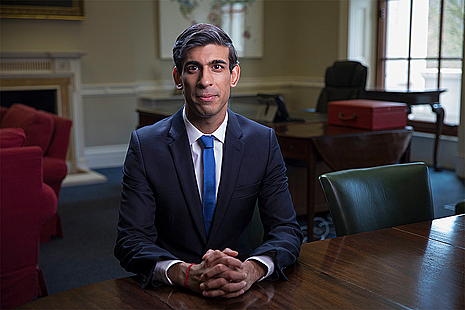
Prime minister Rishi Sunak has faced calls from business leaders to change tack on VAT policy, as he seeks to repair his government’s relationship with business following three years in which a sometimes-fractious relationship has damaged the Conservative’s reputation as the party of business.
Gerry Murphy, chair of Burberry, told the PM that the decision to end VAT refunds, made by Sunak as chancellor in 2020, was an “own goal”.
Murphy pushed Sunak to reverse his decision to remove tax-free shopping for tourists spending in the UK.
Speaking at a government-organised conference, Business Connect, the Burberry boss said the decision had made the UK the “least attractive shopping destination in Europe”, reports the Guardian.
‘Backing businesses’
Earlier in the conference, the PM said: “We want businesses small and large to know that this government has got your back.”
Sky News reports that he promised to look at the data, adding: “We take this very seriously, we are here to listen and engage.”
Speaking at the same event, which saw around 200 high-profile chief executives given the opportunity to question the PM, chancellor Jeremy Hunt defended the decision to remove the VAT refund and said it had saved the UK about £2bn.
Sunak also hosted a live LinkedIn Q&A with small and medium businesses during the conference.
Food issues
The government is likely to face future calls to tweak its post-Brexit trading strategy, after concerns arose that checks on goods imported from the EU could add further costs to UK businesses.
Politico Pro reports that new post-Brexit checks on goods coming from the EU could fuel continued food inflation, with firms hit with £400m in extra costs because of the long-deferred border checks.
One person who has seen the government’s border plans said its proposals will “substantially increase food costs”.
Persistent inflation has already led to UK consumers changing their spending patterns, with discounter supermarkets like Lidl and Aldi seeing sales jump, as reported by Bloomberg.
Horsemeat revisited
The chair of the inquiry into the horsemeat in food scandal in 2013 has warned that post-Brexit changes mean the UK has “lost control” of the issue, as it is no longer part of the EU Food Fraud Network.
Writing on Horsegate’s tenth anniversary, Professor Chris Elliott explained food imports were still vulnerable.
“While once food destined for the UK was subject to the same level of inspection and scrutiny as elsewhere in Europe, our imports now receive the same attention as a consignment of unsafe meat heading for remote corners of the world, i.e., none at all,” he said.



